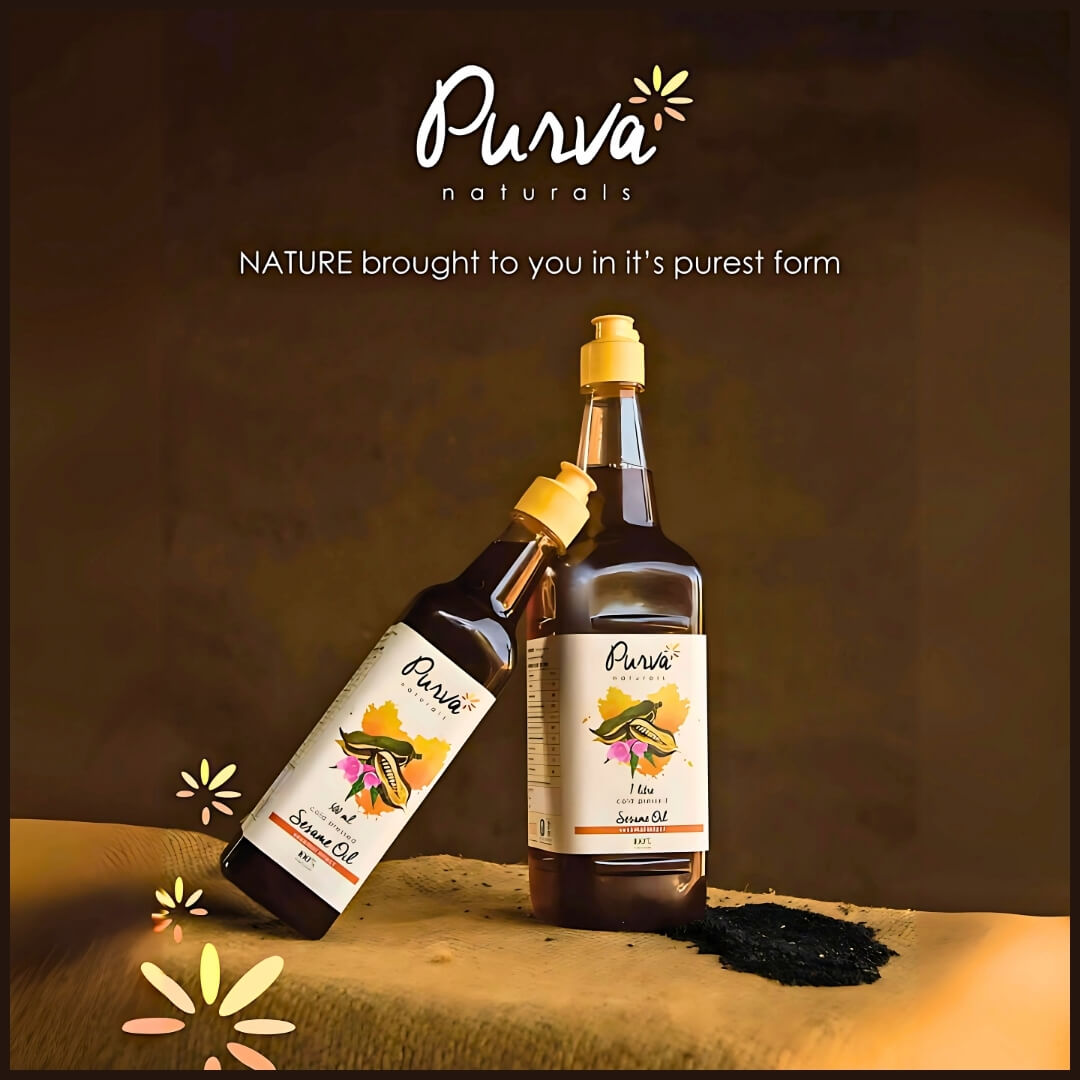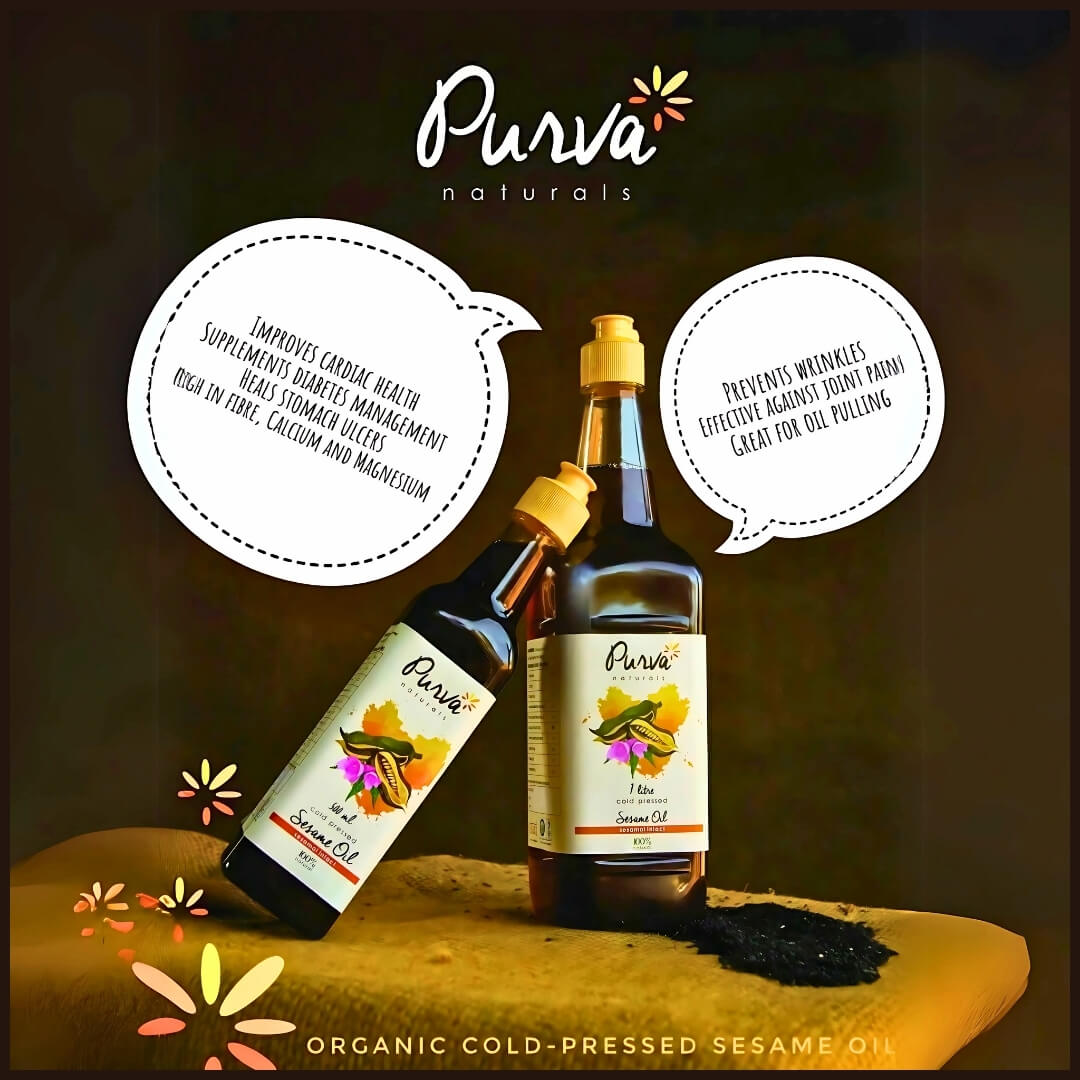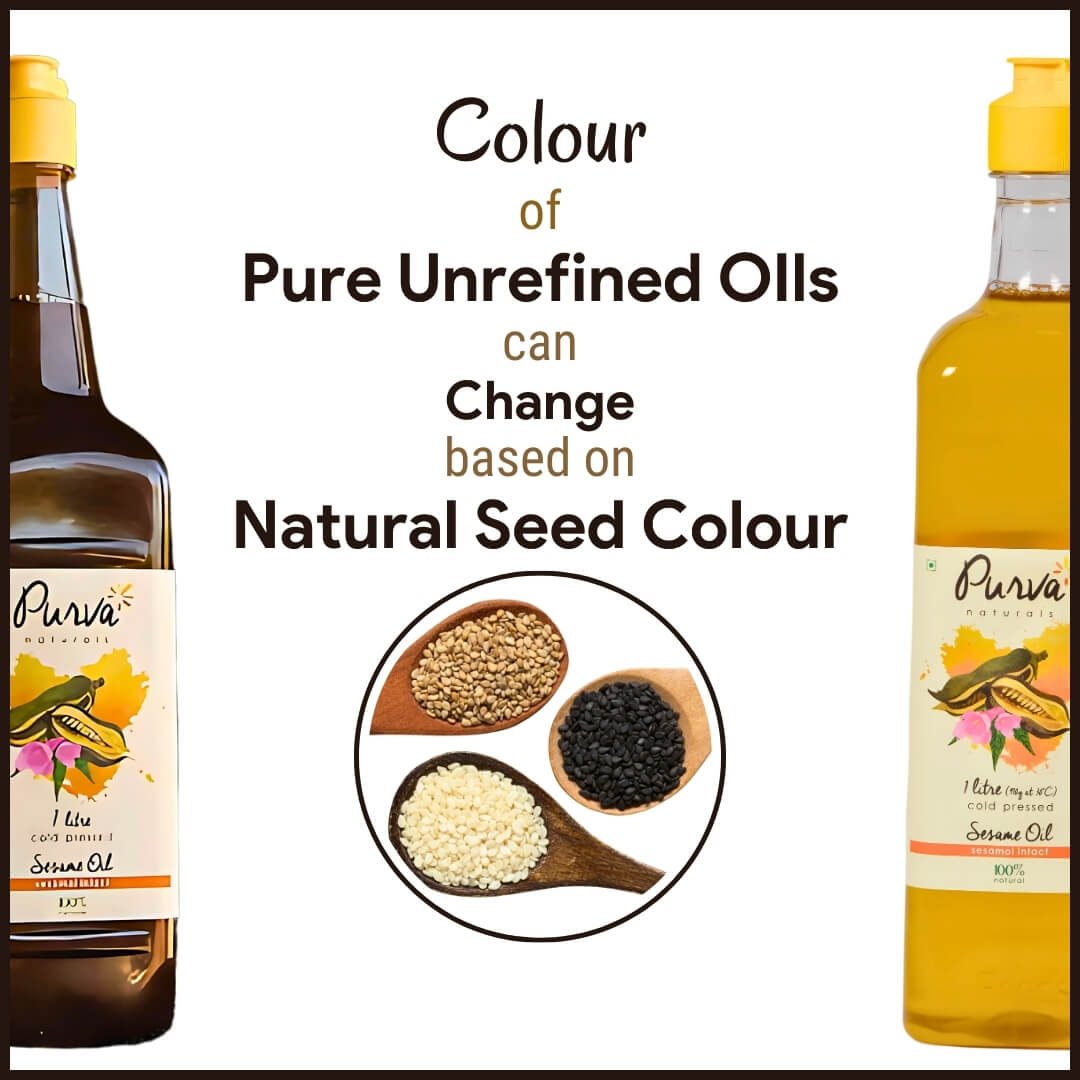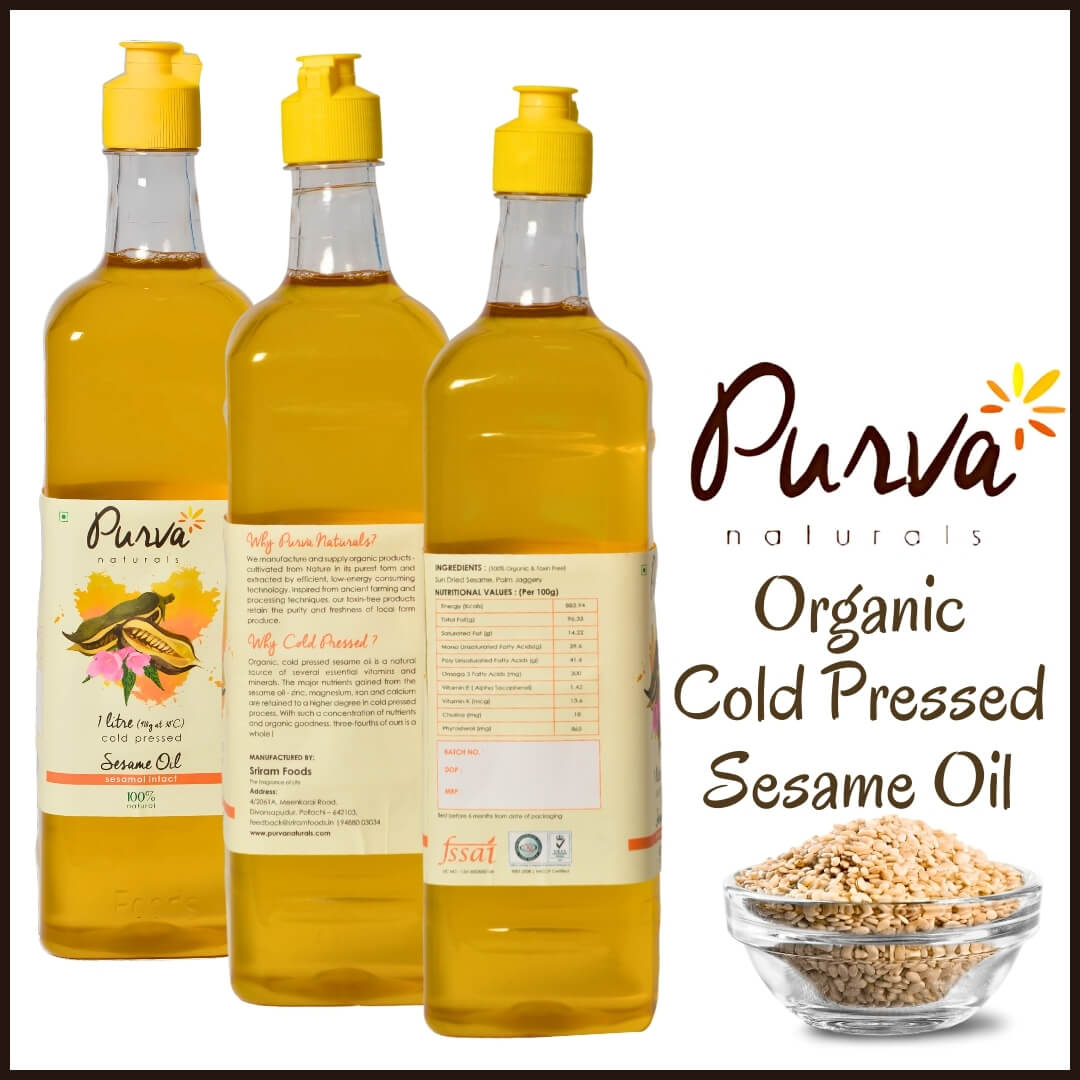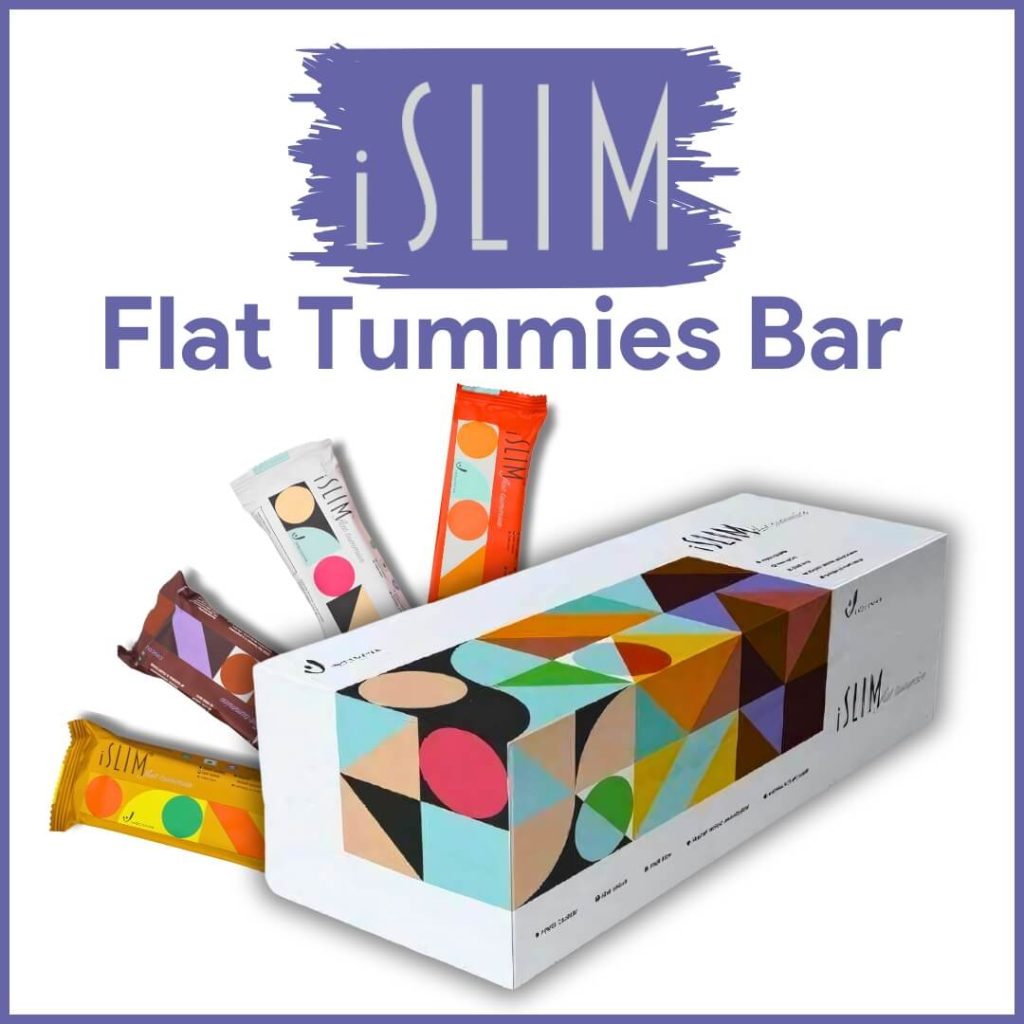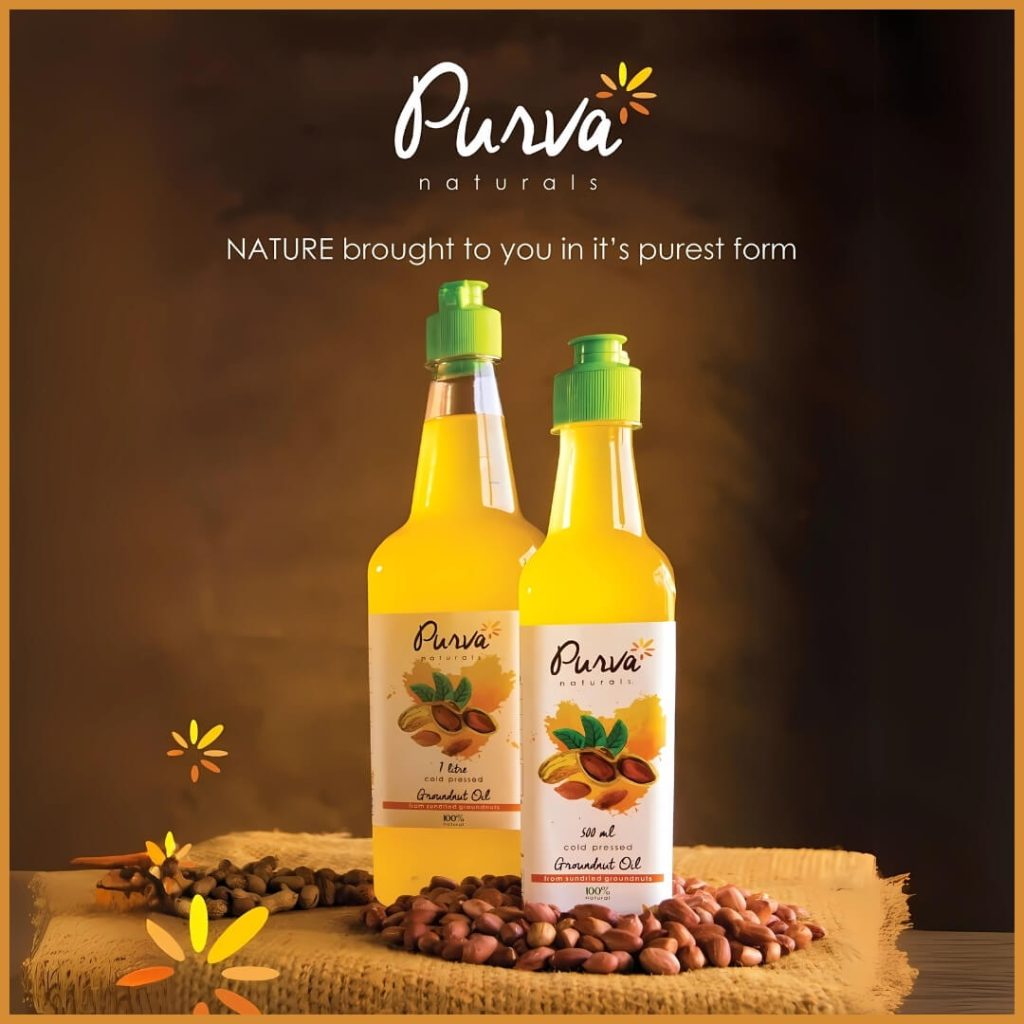Organic cold pressed sesame oil from Purva Naturals is made using black sesame seeds. Organically cultivated sesame adds to the health value add and cold-pressing ensures that all the natural goodness, nutrition and flavor are retained
What’s Unique about Purva Naturals Organic Cold Pressed Sesame Oil
Purva Naturals Organic Cold Pressed Sesame Oil has five qualities that make it the best organic sesame oil.
- Organic black sesame seeds are used for oil milling. They are grown without use of any synthetic fertiliser or pesticides.
- The seeds are naturally sun-dried (No chemicals used to speed-up drying)
- Cold-pressing is done in a specially designed stainless steel press ensuring that temperature is contained within 50oC
- Gravity filtering is done, where oil allowed to stand, allowing residues to settle slowly, without any chemical refining
- Oil extraction is done at minimal (3-4%) moisture consitions, thus ensuring a longer shelf life
Sesame Oil Unveiled
What is Sesame Oil?
Sesame oil is a time-tested & treasured oil that comes from tiny seeds of the sesame plant (Sesamum indicum). Sesame oil is also known as gingelly oil or til oil in India & has ben been used unrefined for thousands of years across different cultures.
Use of sesame oil for cooking, and for massage on skin and hair is common in Asian cultures. In Ayurveda, sesame oil is valued for its warming properties.
Sesame Oil vs. Other Oils: What Sets It Apart?
Sesame oil isn’t just another cooking oil; it has unique qualities that set it apart.. Sesame seeds were regarded as the “queen of oilseeds” in ancient literature due its remarkable health benefits & aroma.
Sesame oil has been used for thousands of years in different cultures in daily cooking, medicine, and religious ceremonies.
It is also known to contain beneficial fatty acids and is rich in Vitamin E. Antioxidants found in sesame include unique nutrients like sesamin and sesamolin.
Key Differences Between Regular Sesame Oil vs Cold Pressed Sesame Oil
-
Method of Manufacture of Cooking Oil:
- Cold pressed oil of sesame is extracted using mechanical pressure without adding heat or chemical solvents. This gentle process helps the oil keep its natural properties.
- Regular Sesame Oil is made using high heat or chemical solvents. The refining process can strip away many of the oil’s natural nutrients and alters its nutty taste.
-
Nutrients in Sesame Oil:
- Cold pressed sesame oil retains more of the beneficial compounds found in sesame seeds, including oxidants sesamin, sesamolin.
- Refined sesame oil may have fewer of these nutrients due to the intense processing methods like heating, bleaching, etc.
-
Flavor and Aroma:
- Cold pressed sesame oil is typically distinctive with nutty flavor and aroma. Its colour varies depending on the colour of the sesame seed used. Purva Naturals cold pressed sesame oil is made from black sesame seeds, so this oil has a far darker colour.
- Refined sesame oil typically has a more neutral flavor and less aroma because the refining process removes many of the compounds that give it its unique taste.
-
Uses of Sesame Oil:
-
- Cold Pressed Sesame Oil is most suitable for low to medium heat cooking & as a finishing oil, especially in Asian cuisines. It is excellent for use in skincare and traditional medicine.
- Refined Sesame Oil has a higher smoke point. So it can be used for high-heat cooking methods.
Health Benefits of Cold Pressed Sesame Oil
Rich in antioxidants, Organic cold pressed sesame oil benefits are many. For one, pure gingelly oil has been shown to support overall health and well-being. It was found that cold pressed til oil has potent antioxidant and anti inflammatory properties, which can help protect the body from a range of diseases.
Cold pressed gingelly oil is rich in monounsaturated fats and antioxidants, and has been shown to have a number of health benefits. For example, a study published in the International Journal of Preventive Medicine compared the beneficial impact on cholesterol between olive oil and sesame oil. It found that reduction in bad cholesterol (LDL & Triglycerides) was better with sesame oil than with olive oil.
In addition to its anti-inflammatory benefits, cold pressed black sesame oil is also a good source of vitamin E, vitamin K, and other nutrients that support heart health and maintain healthy cholesterol levels.
Traditionally in South India pure sesame oil is extensively used not just for cooking but also as a massage oil before an oil bath.
Buy organic cold pressed sesame oil online from Purva Naturals today and experience the delicious and nutritious benefits for yourself. It’s the perfect choice for adding flavor and health to your meals.
How Cold Pressed Oil is made by Purva Naturals
Step 2: These organic nuts or seeds are dried in the sun until they have only 5-7% moisture content. No chemicals are used in the drying process whatsoever.
Step 3: The nuts or seeds go into a stainless steel oil press that has been designed and built in-house to squeeze out the natural sesame oil. The machines have been specially designed to operate a low rotating speeds of below 50 rpm. This ensures that the temperature is kept down to less than about 50oC during this pressing. Overheating is prevented as excess heat can damage the healthy nutrients in the oil that are heat-sensitive.
Why Organic Cold Pressed Oil is Best
Because, organic cold pressed oil brands like Purva Naturals will:
- Use only organically cultivated nuts or oil seeds as raw material.
- Do not use any chemicals for drying the nuts or seeds. Instead they only use natural drying methods like solar driers.
- Do not add any checmials as preservatives or to increase the shelf life of these oils.
Storage of Cold Pressed Sesame Oil
Follow these simple tips for maximising freshness of cold pressed oils:
- Buy & store a quantity of oil just adequate for use within one or two months. Once you open the seal of a packed bottle try and utlise the oil within one month. This minimises any risk of rancidity of the oil.
- Store the oil in a cool, dry place away from direct sunlight.
- Multiple reheating of once-heated oil is best avoided. You can at best consider using once-heated oil for uses involving only low or medium heat

